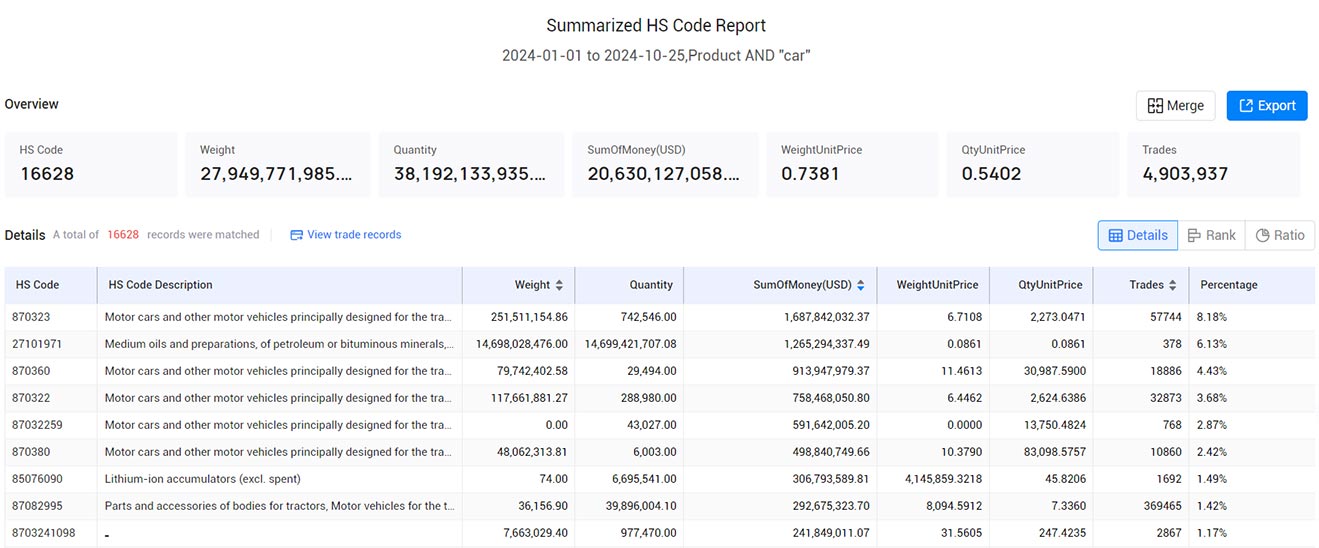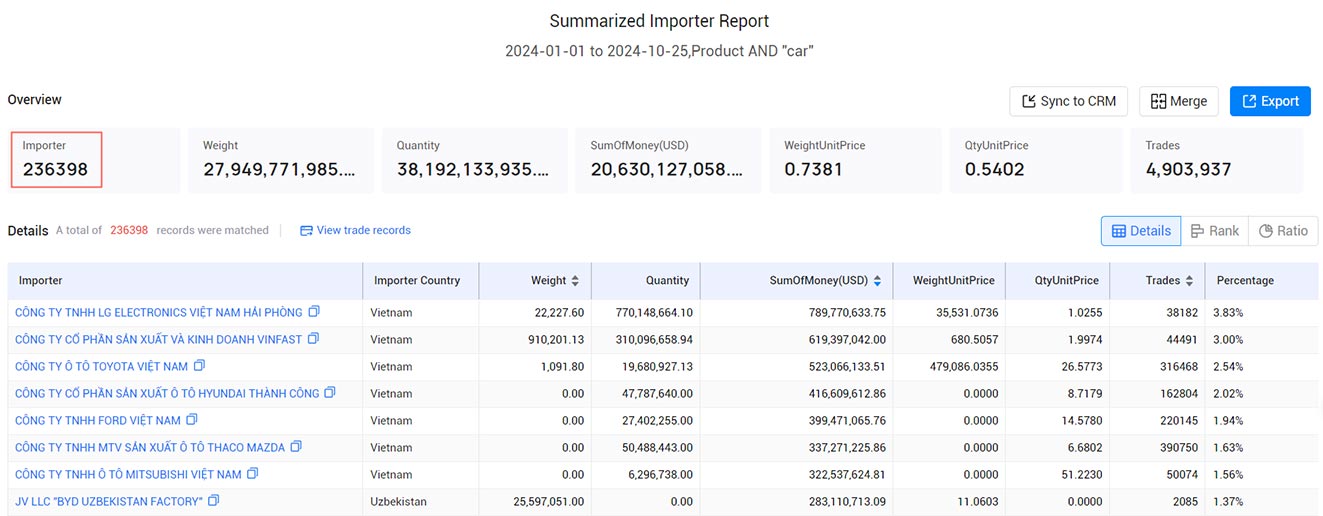 Trade Data Provider
Trade Data Provider
 25-10-2024
25-10-2024
When starting out in the foreign trade industry, it's crucial to avoid common pitfalls. However, many people get stuck in fixed mindsets right from the beginning. In recent years, I've often mentioned that the future trend in foreign trade is moving away from platforms. If your first thought when considering the first step in foreign trade is to choose a platform, it indicates that you may not yet possess the fundamental business skills.
A decade ago, it seemed reasonable to select a foreign trade platform when you were first getting into the field. However, today, relying solely on foreign trade platforms without experience may not yield the desired results. Besides hoping for good luck, what else can you do?
Therefore, the first step in foreign trade should not be about which platform to use, but rather about understanding where your market is and where your customers are. I understand that you may have turned to foreign trade due to bottlenecks in your previous business, feeling at a loss. If you continue to rely on old methods, those bottlenecks will persist.
For instance, if you've been working with hardware components and feel you have deep expertise in that area, but domestic competition is fierce and you want to expand into international markets, it may seem logical. But will simply changing sales channels solve the problem? When competition is intense and bottlenecks arise, is it really just an issue of sales channels? I believe the problem lies in resources.

Thus, the first step in foreign trade is actually deciding what products to sell—this is product selection.
The rationale for product selection shouldn't be based on a relative's
factory producing a certain product or a friend's successful sales of a
particular item. Such thinking indicates a lack of independent thought and may
ultimately lead to competition with your relatives or friends.
So how should you select products? Relying on friends and relatives who claim a product sells well is insufficient; data is the key. Start by setting a broad direction. For example, if you still want to work with hardware, which specific types are selling well? Customs data can provide you with the answers. If you’re targeting the U.S. market, you can select the U.S. in the customs database and enter product keywords to see which hardware items are performing well. If you're uncertain about your target market, you can also check global customs data.
>> Use Customs Data for Product Selection <<

After selecting products, you need to consider how to expand your customer base.
If you only want to take orders through foreign trade platforms, you might as
well try your luck with a lottery. This isn't to say that you can't get orders
through foreign trade platforms, but it's often difficult for newcomers to
profit from them. Even if you spend a lot on promotions, it's unlikely that you
can capture many clients from the industry. Even if you receive a few inquiries,
your current business capability might not enable you to close deals. Taking on
small orders might not even cover your annual fees.
In contrast, using customs data to find customers can be much more effective. Customs data can directly display a list of buyers from around the world or a specific region, all of whom have trade records in the past year. Finding customers who are not very loyal to suppliers and have purchased products similar to yours can be a more efficient breakthrough than attracting clients through a foreign trade platform.
>> Use Customs Data for Customer Acquisition <<

Therefore, independent customer acquisition is essential.
Independent customer acquisition is a methodological issue and is not overly complex. We need to broaden our thinking and not be constrained by various "hearsay." Through independent customer acquisition and a scientific product selection strategy, you can more effectively develop foreign trade clients.
Category
Leave Message for Demo Request or Questions


 T-info
T-info T-discovery
T-discovery

 My
Tendata
My
Tendata Market Analysis
Market Analysis Customer
Development
Customer
Development Competitor
Monitoring
Competitor
Monitoring Customer Relationship
Customer Relationship





































































































































